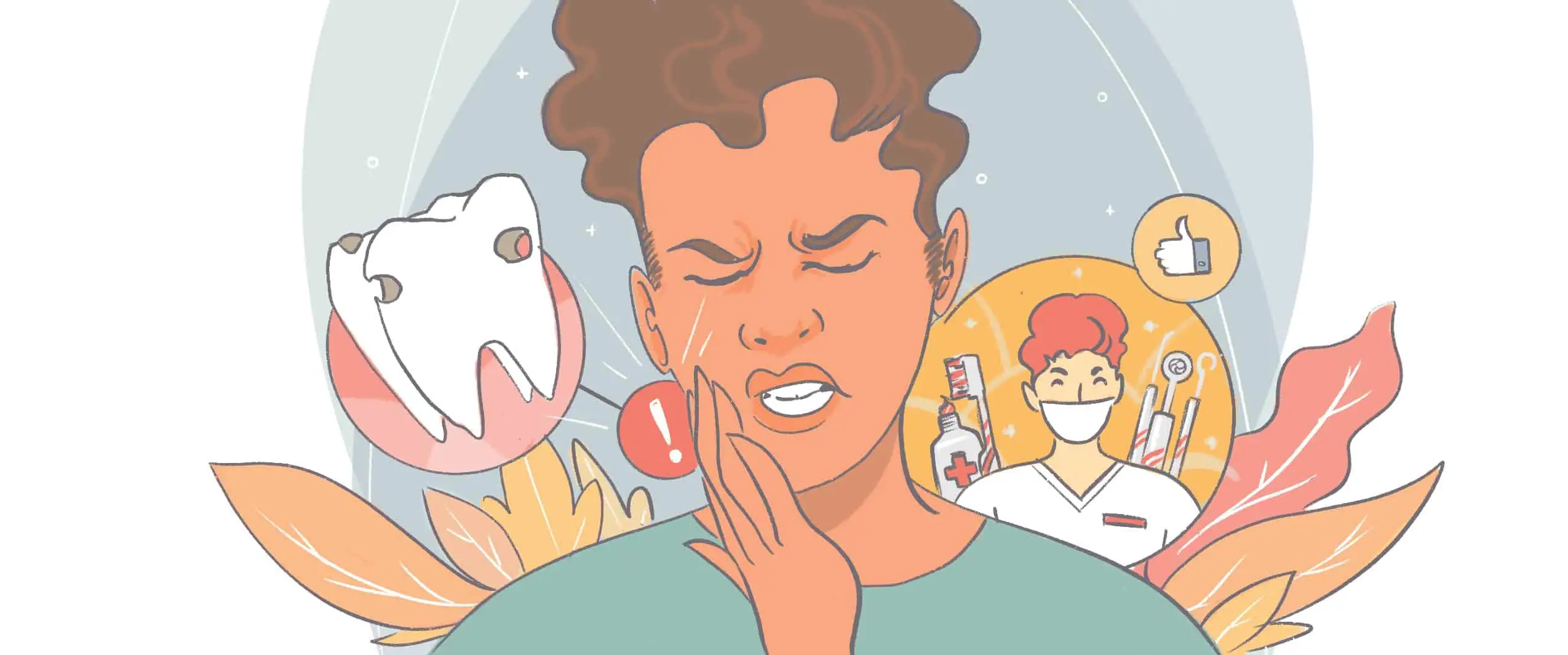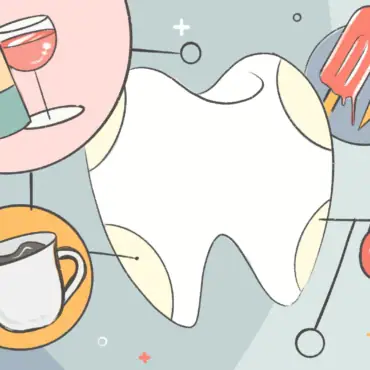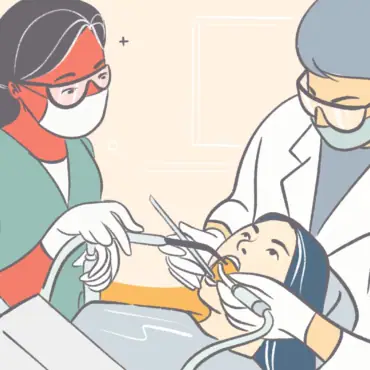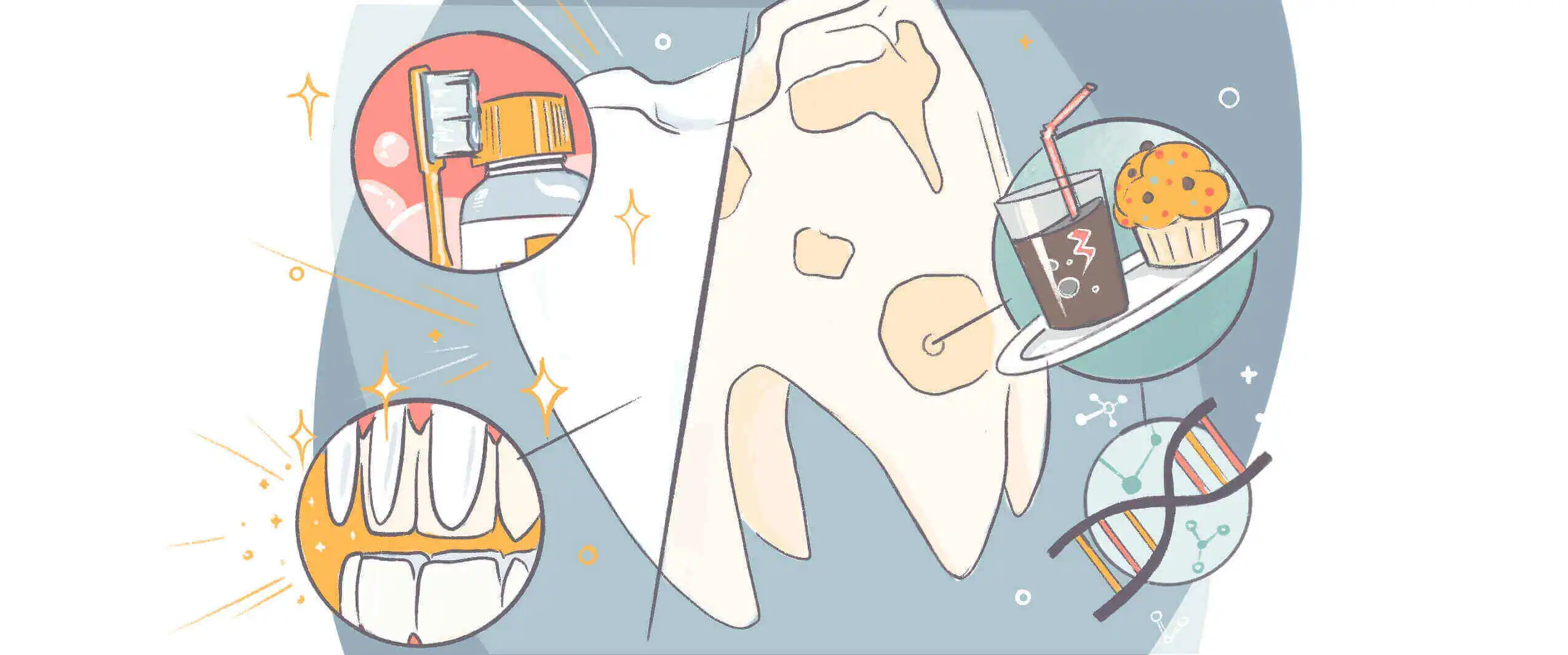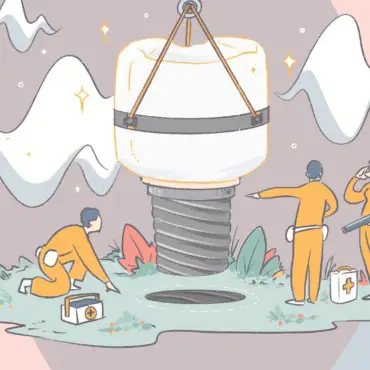Bruxism is the medical term for grinding your teeth. And while lots of us do it occasionally, doing so regularly can cause serious dental problems.
Bruxism can occur in one of two way: nocturnal (while you’re asleep) or awake (when you’re doing it subconsciously throughout your day. But how to stop doing it? Going to the dentist is the very first step. After that, you’ve got several remedies and treatments available to you. Let’s discuss.
Why do some people grind their teeth?
Stats indicate around 9% of the population are regular teeth grinders, and about half of us (!) grind our teeth from time to time. As for why, it’s hard to pinpoint a single reason. It’s often a combination of factors, including stress, anxiety, and in some instances, nutritional deficiencies.
Some people start grinding their teeth as a way to combat feeling anxious or stressed out. It could also be a result of an abnormal bite or crooked teeth. Another primary reason some people grind their teeth is a sleep disorder like sleep apnea.
Research also indicates excessive teeth grinding can be linked to a vitamin D and vitamin B5 deficiency in younger children. In this era, children are spending increasing amounts of time indoors, which is a significant reason why vitamin D deficiency is becoming increasingly more common. Calcium and magnesium deficiencies also have a correlation with excessive teeth grinding.
How can I find out if I grind my teeth?
A lot of people don’t realize they’re bruxists. In many cases, it’s a partner who identifies the problem when they hear the grinding sound at night. For children, their parents are generally the first ones to notice. It’s challenging to catch bruxism in its early stages because it’s tough to notice symptoms, which usually appear in later stages. But over time, signs become easier to notice.
One of the critical signs of teeth-grinding is a dull headache or pain in the jaw joint. The pain tends to be most intense right after you wake up. Another clear symptom is aching teeth and overall stiffness in the face and temples.
In any case, a dental inspection is one of the best ways to identify whether you’re grinding or not. Making a dentist appointment is the best first step.
Consistent grinding may result in damaged tooth enamel and tooth indentations on the tongue. And in some extreme cases, there’s also raised tissue, which is a result of cheek biting. Another symptom is loose teeth.
Sign up for our newsletter.
Just let us know a bit about yourself.
Why is bruxism harmful?
Occasional grinding isn’t harmful, but chronic bruxism can have consequences for dental health.
It can result in fracturing, loosening, and in the worst case, loss of teeth. In some instances, the grinding goes unattended for so long it can potentially wear the teeth down to bare stumps. In these extreme cases, sometimes the only option is getting a full set of dentures.
And chronic grinding doesn’t just impact the health of your teeth; it affects the whole jaw. A dull, consistent ache is one of the primary symptoms. It can also change the shape of your face, as it impacts facial muscles.
How do I stop grinding my teeth?
If left untreated, bruxism can have severe consequences for your overall dental health. Several different solutions are available, ranging from mouthguards and splints, Botox, and other techniques like biofeedback.
Mouthguards
Wearing a mouthguard to deal with chronic grinding while awake can be a bit tedious. However, it’s one of the best ways of combatting nocturnal bruxism. Mouthguards function by serving as a cushion between the teeth.
There are several different mouthguard options available on the market. A better and more comfortable fit can get a custom-made mouthguard from the dentist. But you can also buy them over the counter at most pharmacies, but consult your dentist before going this way.
Reductive coronoplasty
A procedure called reductive coronoplasty is another option. This involves reshaping or leveling the biting surface of the teeth. In more severe cases, additive coronoplasty will follow the first procedure. Additive coronoplasty offers patients the opportunity to build back up any ground teeth. Both methods are relatively straightforward and should fall under most dental plans. Find a dentist near you to perform this procedure.
Botox
Aside from just being an aesthetic tool, certain medical benefits come with Botox use. Injections of Botox will significantly reduce the pain and has the potential to reduce the frequency of teeth grinding.
It’s important to discuss the risk of using Botox injections for bruxism treatment with medical practitioners before getting the shots. Injections will essentially help stop the chronic grinding by relaxing the masseter — the large muscle that moves the jaw.
Biofeedback
Biofeedback is a developing medical treatment that’s effective for different conditions. It’s a technique designed to help people become aware of the behavior and ultimately eliminate it. The technique is effective at dealing with both nocturnal and awake bruxism.
The process involves visiting a biofeedback therapist. These therapists then teach effective techniques that help control jaw muscle movements through visual, vibratory, or auditory feedback.
Still need answers?
Book with a top-rated dentist in your city to get the treatment you need.
Stress reduction techniques
Regardless of the level of bruxism, the root cause is often stress. That’s why one of the best ways to stop grinding your teeth is to practice stress-reduction techniques.
Yoga
Yoga is one of the best ways to relieve stress and improve one’s health at the same time. A lot of research correlates yoga with a reduction in mild depression. The combination of stretching and breathing exercises will help reduce the overall stress and make the practitioner better at dealing with stress.
Therapy
Talking to a professional is one of the best ways to deal with stress or anxiety. Psychiatrists can also assess and help you learn more about yourself.
Exercise
And of course one of the best ways to reduce stress and reduce your risk for teeth grinding is exercise
How can I help my child stop grinding their teeth?
Bruxism is particularly difficult for young children. The sound of the child continuously grinding their teeth is one of the most stressful sounds for parents. If a child suffers from chronic grinding, there are lots of techniques parents can use.
And because stress and anxiety can be present in kids too, reading a bedtime story or engaging in a fun activity is one of the best ways to reduce stress before they sleep. Also, regular visits to the dentist can help children understand how important it is to take care of their teeth.
Final thoughts
Chronic bruxism can have severe consequences for the overall health of your teeth. It’s essential to understand the causes of the disease and adopt the treatment option that suits you best as soon as possible. Visit a dentist near you to get started on treatment options right away.

